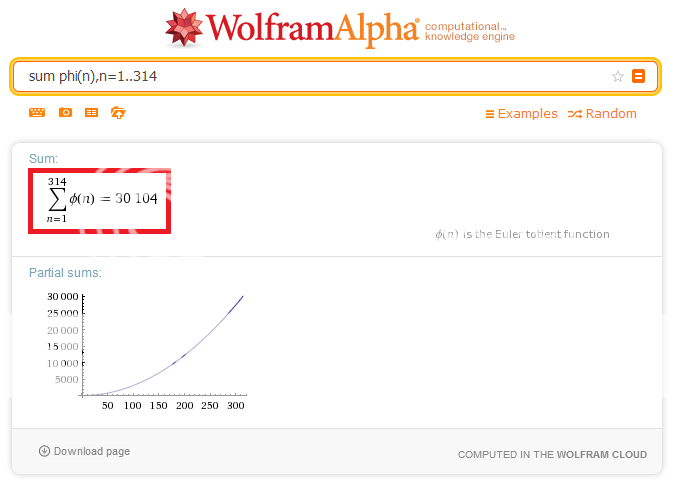Euler's Totient Sum
Find the sum of Euler's Totient function from 1 to 314.
The Euler's Totient function of is defined to be the number of relatively prime positive integers to less than or equal to . 1 is relatively prime to every number, even itself.
The answer is 30104.
This section requires Javascript.
You are seeing this because something didn't load right. We suggest you, (a) try
refreshing the page, (b) enabling javascript if it is disabled on your browser and,
finally, (c)
loading the
non-javascript version of this page
. We're sorry about the hassle.
